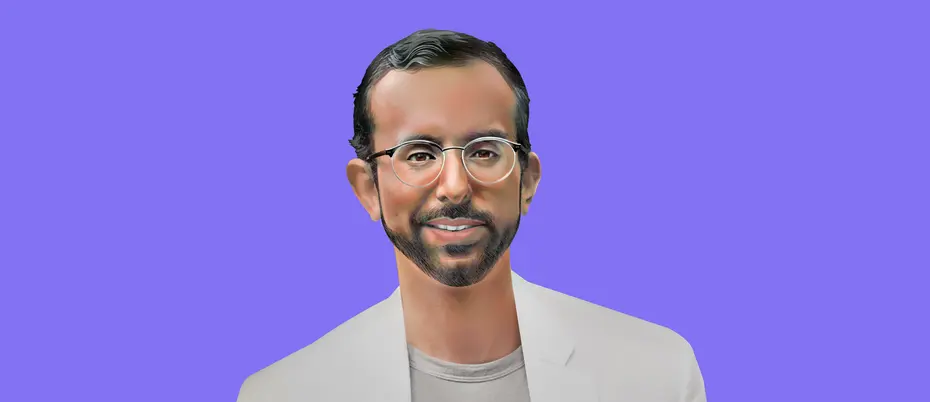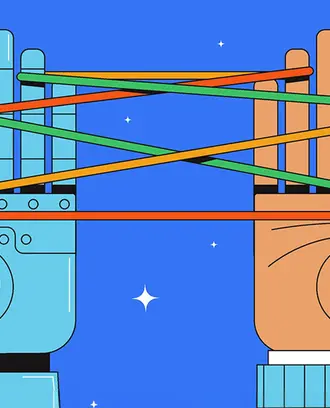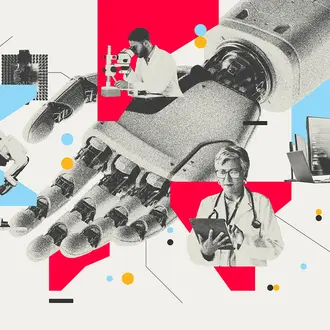Leadership
A ‘break from chaos’ lets this CEO find his best ideas
Krishna Gupta is his own barometer for ideas. If something excites him, he’ll act on it. But if he can’t find the passion to overcome any resistance, he knows it’s time to move on.
Like many of us, Krishna Gupta gets his best ideas in the shower.
The ideas also come about on walks, reading the news, and listening to music, but it’s that “emptiness of simplicity,” that Gupta said helps him the most.
“I ideate best when there is a break from chaos” said Gupta, SB ’09. “It is the hardest state to achieve.”
While not always chaotic, Gupta’s life is a busy one. In 2008 he started Romulus Capital in his MIT dorm room. Romulus was an early stage venture fund that invested in MIT-spun companies like ClassPass and Presto (which powers those now ubiquitous tableside tablets for ordering food), and Gupta sits on a variety of boards including at Cogito, another MIT-founded company, which offers voice-analytics software. Romulus Capital is now Remus Capital (named after the twin brothers of Roman mythology), and in 2019 Gupta sold off his first fund for $4 million, quadruple the fund's original worth.
We talked with Gupta about the “structured chaos” of idea generation in a startup environment, his predictions for the intersection of human behavior and machine learning, and his appreciation for people who push boundaries.
What inspires you?
Authenticity and audacity really inspire me. I love people who discover and live who they are, without feeling constrained by people or society around them, and then dream the biggest versions of themselves. The most inspiring creators — of companies, technology, art, anything — are always authentic to themselves. They have raw, uncut ambition. They are decisive because they know what they want and are unabashedly audacious about pursuing it.
Beauty also inspires me. Beauty can come from humans, nature, a math problem, software, a painting, a piece of music, whatever. Beauty activates passion; it connects neurons in a unique way. That passion inspires me to dream bigger and create something worthy of that beauty.
Who inspires you?
I am inspired by self-made leaders who aspire to create empires — business, technological, scientific, artistic — in the pursuit of unlocking human potential and progress. These leaders demonstrate their ability to dream really big while still being grounded in execution. They build to last, not to flip, and I have deep admiration for that.
Some of the people I admire today include Bill Gates, Jeff Bezos, Doug Leone, Richard Branson, Steve Schwarzman, Patrick Collison. Past leaders include J.R.D. Tata, J.P. Morgan, and Walt Disney. Genius is also inherently inspirational: the philosopher Nietzsche, the novelist Pamuk, the mathematician Ramanujan, the artist Kandinsky, the engineer Langer. People who push the boundaries so far beyond what I could imagine to be possible inspire me.
I also draw particular inspiration from Napoleon, a self-made man who conquered Europe at an incredibly young age while advancing society in multifaceted ways. So many incredible ideas came out of the Napoleonic era.
How are new ideas discovered and developed in your organization?
We are a highly decentralized organization today, and our discussions frequently evolve in small groups with the ideas percolating upward. Ideation happens from interactions between very intelligent, curious, and ambitious individuals. The best conversations in our world can be absolutely electric. They are often at the boundaries between the organization and our external environment. Any startup organization is structured chaos, and a venture capital firm has a particularly high degree of autonomy and decentralization.
How do you keep track of new ideas?
I have a running list of ideas or initiatives I would like to work on, usually in an email draft in Gmail. Not particularly sophisticated!
Who do you share new ideas with?
My colleague John Tincoff, with whom I went to boarding school, is always a good sounding board for new ideas. I also introduce ideas at our weekly team meetings and turn to the entrepreneurs with whom we have partnered for their feedback. These are all people who have no hesitation in telling me I'm wrong.
But I usually try to test my ideas on myself first. If an idea still excites me a couple days later, I’ll start to share it with others.
How do you test ideas?
It's hard for me to test an idea without implementing it. I err on the side of action: If I have an idea that I’ve vetted with myself and a couple other people around me, I prefer acting on it. Sometimes the best test of an idea is committing to it and seeing where it goes. If you don't remain committed to it and can't invest in it, then clearly it wasn't worthy of further exploration.
When do you know it is time to abandon an idea?
When I don't think I have the passion or bandwidth to pursue it against the passive resistance of time or the active resistance of argument. That means it isn't good enough or doesn't resonate with me enough to be worthwhile.
What's the biggest idea you are working on right now?
I am deeply passionate about the intersection of humans and machines, particularly around emotion, cognition, and the data we can capture from these facets of being human. How can we understand and codify human emotion, thus making both humans and machines “smarter?” We are at the early stages of the human-machine convergence and its applications for both enterprises and consumers.
At MIT Sloan, we talk about ideas made to matter — ideas that are carefully developed and have meaningful impact in the world. In that context — what is your idea made to matter?
I have been exploring the intersection of human behavior and machine learning/artificial intelligence since I founded the firm at MIT. I truly believe that humans will inform the development of intelligent machines and machines will help augment humans, and that this duality will have a profoundly positive impact on the development of our world. There is an inevitability to it, but everyone only talks about the convergence, the point at which machines overtake humans. I think there is a lot to understand and a more collaborative dance between human and machine before that confrontation happens.
The nexus of emotion and cognition is what interests me most as a human being, as a technologist, and as an entrepreneur/investor. I’ve partnered with professor Sandy Pentland — a co-creator of the MIT Media Lab and advisor to our firm — on this theme. One of the first companies I partnered with Sandy on was Ginger, whose AI leverages mobile phone data to identify warning signs of mental health issues.
Cogito and Humanyze, also co-founded by Sandy, both espouse this idea that we can use machines to capture distinctly human data, then use those insights to improve as humans. We are still in the early days of these ideas and their impact on the world — I am jazzed to do ten times more work in this space!




